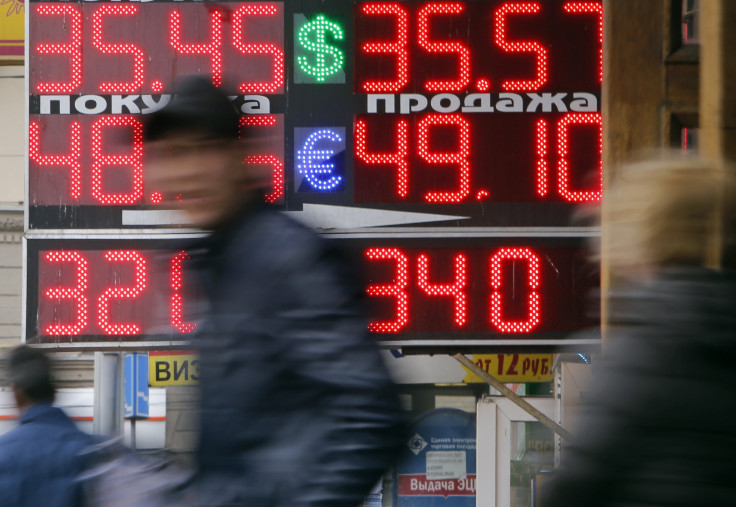S&P Lowers Russia's Currency Ratings; Says Further Sovereign Ratings Downgrade A Possibility If Slow Economic Growth, Sanctions Hurt Creditworthiness

Standard and Poor’s on Friday lowered Russia's currency ratings and hinted at the possibility of another sovereign rating downgrade if Moscow's failing creditworthiness worsens any further amid slowing economic growth and Ukraine sanctions.
S&P cut Russia's sovereign debt rating one step to "BBB-." That is the ratings agency's lowest investment grade, and is on par with Brazil and Azerbaijan. Russian currency and bonds fell. The last time S&P downgraded Russia was in 2008, Bloomberg News reported Friday. The outlook on both Russia's foreign and local currency ratings remains negative.
"If we perceived increased risks to Russia's creditworthiness stemming from much weaker medium-term economic growth or due to reduced monetary policy flexibility, we could lower our sovereign ratings on Russia further," S&P said in a statement.
Last month, Russia was placed on review for a downgrade by Moody’s Investors Service and Fitch Ratings cut its outlook to negative.
S&P cited a sharp increase in capital outflows in the first quarter amid rising political tensions, adding that, as a result, external financing could see a steep drop. Capital outflows stood at $50.6 billion in the first quarter, compared with $63 billion for all of 2013, Bloomberg said.
Russia's economy minister, Alexei Ulyukayev, said earlier this month that the country's growth slowed to 0.8 percent in the first three months of this year due to uncertainty over the crisis in Ukraine. That compares to growth of 2 percent in the fourth quarter.
“The decision is partially expected -- Russia is almost in recession, even without sanctions,” Dmitry Dorofeev, a money manager at BCS Financial Group, in Moscow, told Bloomberg by phone.
The rouble weakened more than 8 percent against the U.S. dollar this year, Bloomberg reported. S&P said it expects that continued economic weakness and growing imports will deplete Russia’s current account surplus by 2015.
“Russia's political institutions remain comparatively weak and political power is highly centralized," S&P said.
"Protesters, opposition members, nongovernmental organizations, and liberal members of the political establishment have come under increasing pressure. We do not expect the government to decisively and effectively tackle the long-standing structural obstacles to stronger economic growth over our forecast horizon (2014-2017).”
The annexation of Crimea by Moscow last month triggered a sell-off in Russian assets amid sanctions imposed by the U.S. and the European Union. Since then, the unrest has spread to other parts of Ukraine, and Russia’s actions on the Ukrainian border have heightened the risk of more sanctions.
“The tense geopolitical situation between Russia and Ukraine could see additional significant outflows of both foreign and domestic capital from the Russian economy and hence further undermine already weakening growth prospects,” S&P warned. "We could also lower our ratings on Russia if tighter sanctions were to result in additional weakening of Russia's net external position."
© Copyright IBTimes 2024. All rights reserved.






















